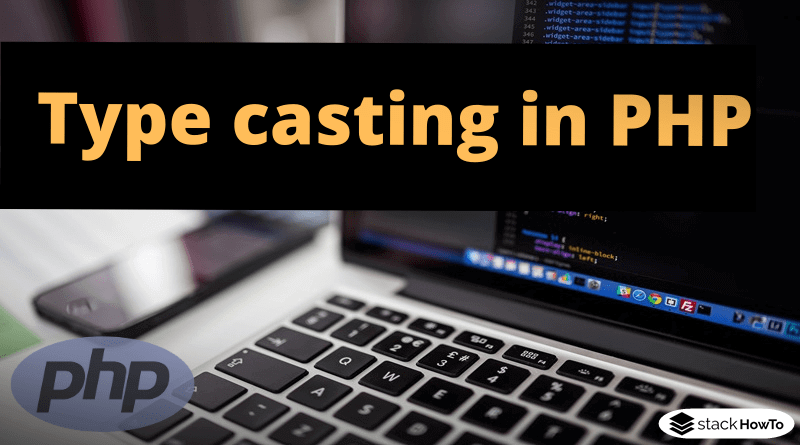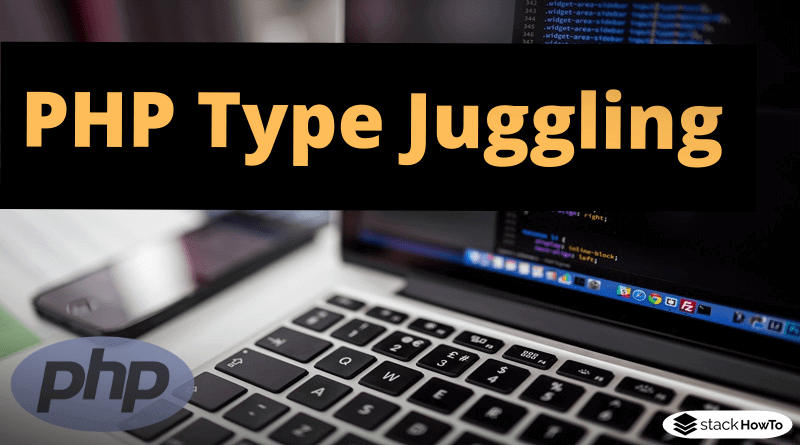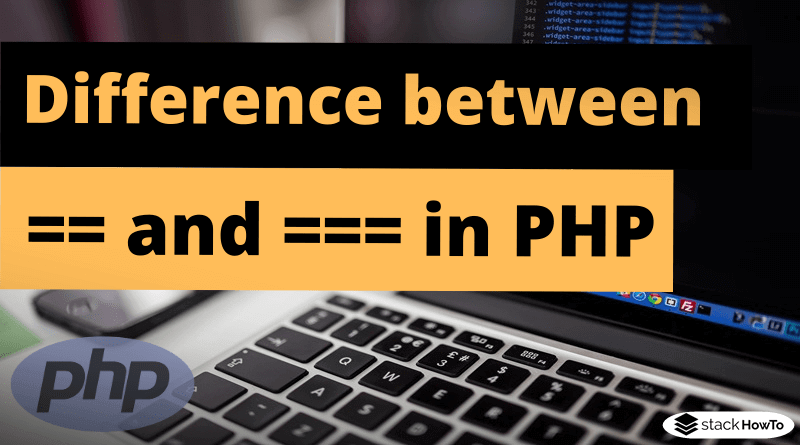Type casting in PHP
Type Cast is the conversion of a variable of data type A into another data type B. For example, converting an integer variable into a float variable would be a typecast. PHP supports type casts primarily for primitive data types (integer, float, Boolean, …) and is very tolerant in this area so that strings can be converted into integers. Unlike Java, however, type casts from one class A to another class B are not supported – even if A inherits from B.
In order to perform a type cast, the new data type must be written in brackets in front of the variable: (new_datype)$variable. The following casts are possible:
• (int) and (integer): conversion to integer.
• (float), (double) and (real): conversion to float.
• (string): conversion to string.
• (bool) and (boolean): conversion to Boolean.
• (array): conversion into an array. When applied to a variable, an array is usually generated, which in turn contains the variable as the only value.
• (object): conversion into an object of the class stdClass. When applied to Float, Integer, String or Boolean, the resulting object has a field called “scalar” which contains the variable. When applied to an array or to NULL, an stdClass object without fields is generated. When applied to an object, the object remains unchanged.
• (unset): sets the variable to NULL, so it is identical to $variable = null;
• (binary): conversion of strings into binary strings.
Example 1: Type cast from Integer to Float
In this example, a variable of the type integer is converted into a float variable.
<?php
$a = 5;
$b = (float)$a;
var_dump($a, $b);
?>
Output:
int(5) float(5)
Example 2: Type cast from String to Integer or (int)
In this example, a variable of the type String is converted into an integer.
<?php
$a = '5';
$b = (int)$a;
var_dump($a, $b);
?>
Output:
string(1) "5" int(5)
When converting from string to integer, all numbers from the beginning of the string to the first character that is not in the range 0 to 9 are taken.
<?php
$a = '55xyz'; // 55 is taken over from this string
$b = 'xyz55'; // nothing will be taken over from this string
var_dump((int)$a, (int)$b);
?>
Output:
int(55) int(0)
Example 3: Type cast from Integer to Boolean or (bool)
Conversion of integer values to Boolean. The number 0 is interpreted as false, all other values as true.
<?php
$a = 0;
$b = 1;
$c = 5;
$d = -5;
var_dump((bool)$a, (bool)$b, (bool)$c, (bool)$d);
?>
Output:
bool(false) bool(true) bool(true) bool(true)
Example 4: Type cast from Float to String
Representation of the conversion from float to string. If you don’t want to have the decimal places, round($var, $precision) must be used, where $precision corresponds to the number of decimal places.
<?php
$a = 1/6;
$b = (string)$a;
var_dump($a, $b);
?>
Output:
float(0.16666666666667) string(16) "0.16666666666667"
Example 5: Type cast from Float to Array
Conversion of a float value into an array. An array is created, which contains the float value as the only element.
<?php
$a = 5.99;
$b = (array)$a;
var_dump($a, $b);
?>
Output:
float(5.99)
array(1) {
[0]=>
float(5.99)
}
Example 6: Type cast from String to NULL
Conversion from string to NULL, identical to $a = null.
<?php
$a = 'test';
$b = (unset)$a;
var_dump($a, $b);
?>
Output:
string(4) "test" NULL
Example 7: Type cast from String to Object
In this example a string is converted into an object of the class stdClass.
<?php
$a = 'test';
$b = (object)$a;
var_dump($a, $b);
?>
Output:
string(4) "test"
object(stdClass)#1 (1) {
["scalar"]=>
string(4) "test"
}
Example 8: Type cast between classes is not possible
A type cast between different classes is not possible, even if they belong to the same inheritance hierarchy.
<?php
class A { }
class B { }
$b = new B();
$a = (A)$b;
?>
Executing the code produces a Type Cast error, as expected:
Output:
Parse error: syntax error, unexpected '$b' (T_VARIABLE) in [...][...] on line 6









